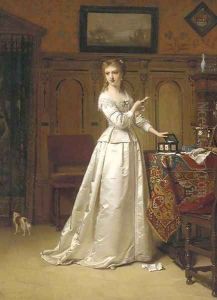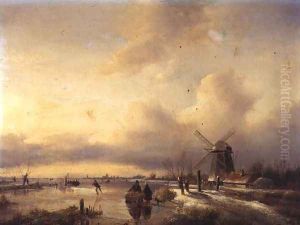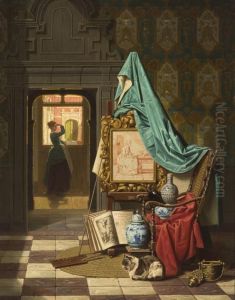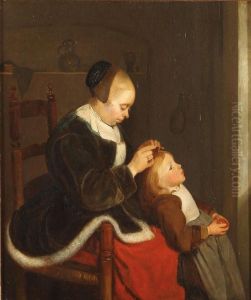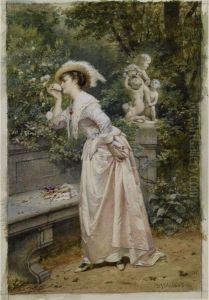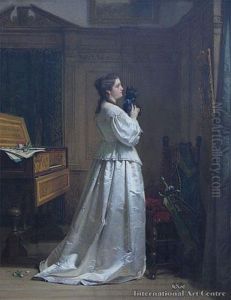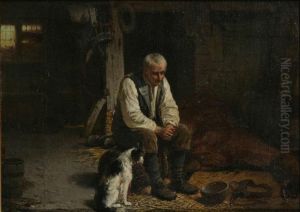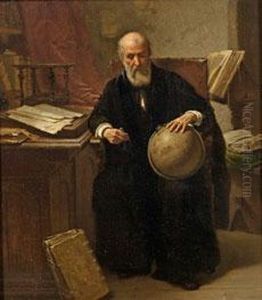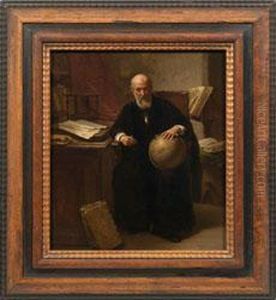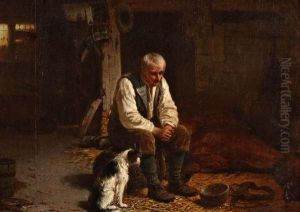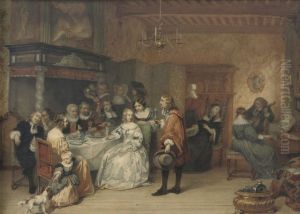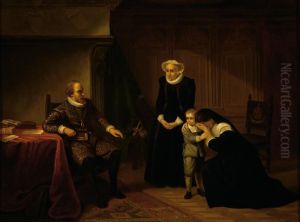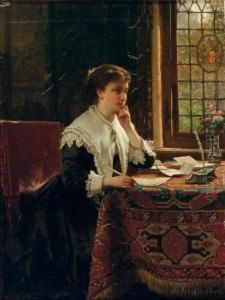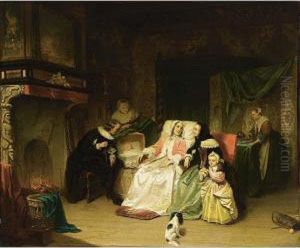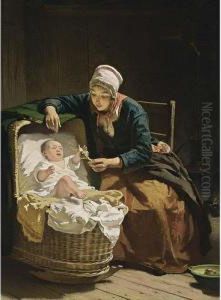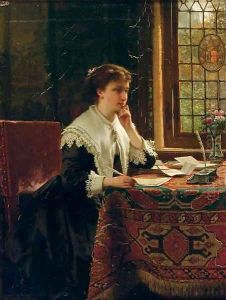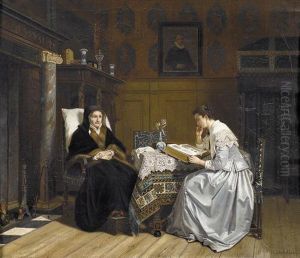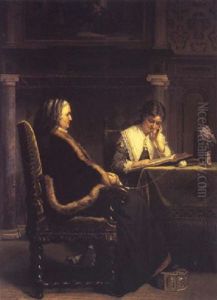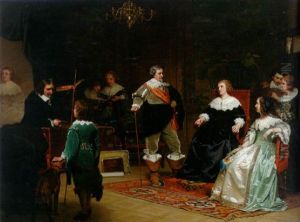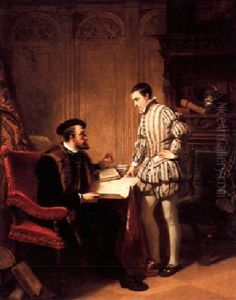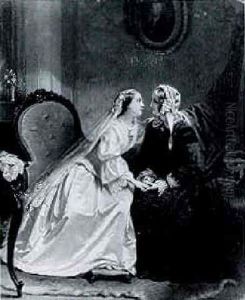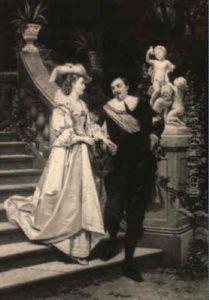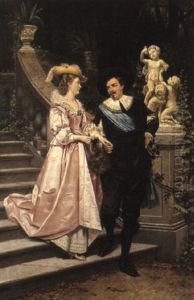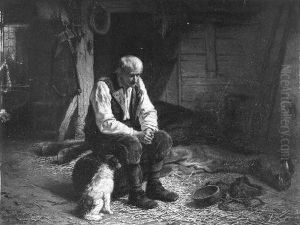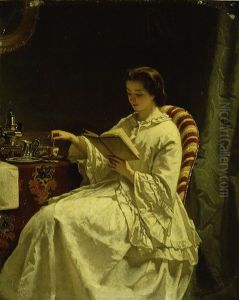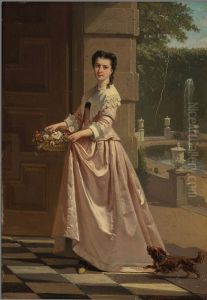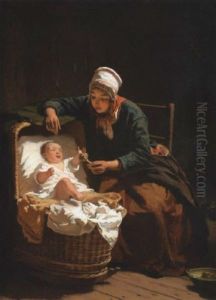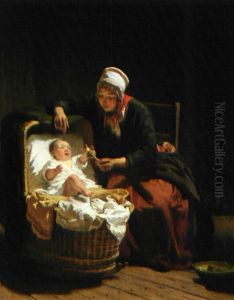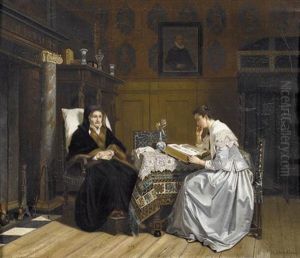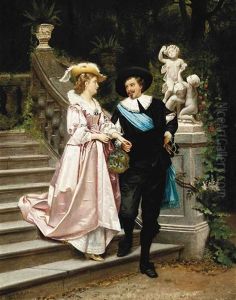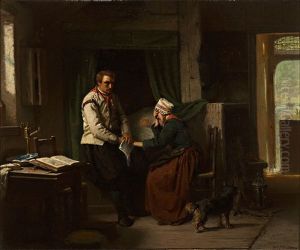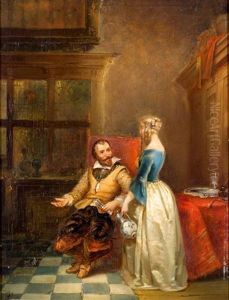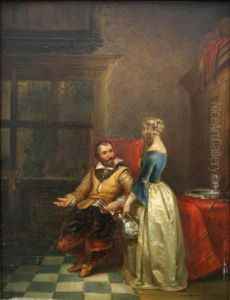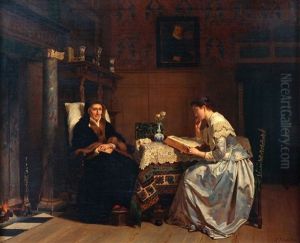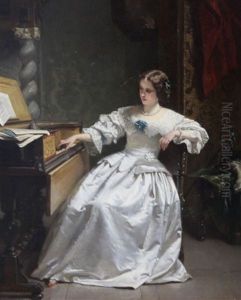Hendrik Jacobus Scholten Paintings
Hendrik Jacobus Scholten was a Dutch artist known for his contributions to 19th-century Dutch painting. Born on August 2, 1824, in The Hague, Netherlands, Scholten grew up in a period marked by significant transitions in the art world, from the late Romantic period to the burgeoning movements of Realism and Impressionism. Though not as widely recognized as some of his contemporaries, Scholten's work offers insightful reflections on Dutch society and the evolving landscape of European art during his lifetime.
Scholten received his formal art education at the Royal Academy of Art in The Hague, where he was exposed to the traditional disciplines of painting and drawing. His early works were influenced by the Romantic tradition, focusing on historical and biblical themes characterized by dramatic expressions and elaborate compositions. However, as his career progressed, Scholten began to explore more contemporary subjects, particularly focusing on scenes of everyday life in the Netherlands. This shift mirrored broader changes in the art world, where there was a growing interest in realism and depicting quotidian realities.
Throughout his career, Scholten exhibited his works at various prestigious venues, including the annual exhibitions of living masters in Amsterdam and The Hague. His paintings were well received, earning him recognition and accolades among his peers and art critics. Despite this, Scholten never gained the same level of fame as some of his Dutch contemporaries, such as Vincent van Gogh or Johannes Vermeer. Nevertheless, his contributions to Dutch art have been appreciated by art historians and collectors, particularly for his ability to capture the subtle nuances of light and shadow, a testament to his observational skills and technical prowess.
Hendrik Jacobus Scholten's later years saw a continuation of his exploration of Dutch landscapes and urban scenes, albeit with a softer palette and a more impressionistic touch. This evolution in his style reflected the changing artistic sensibilities of the late 19th century and early 20th century. Scholten passed away on April 30, 1907, in The Hague. Today, his works are housed in various Dutch museums and collections, where they continue to be studied and admired for their contribution to the narrative of Dutch art history.
